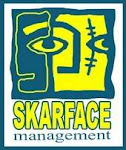 Tips 1: Musicians with equipment
Tips 1: Musicians with equipmentYou aren’t a guitarist without a guitar, no more than a drummer is without drums.
1st Phase: Buy or rent the equipment.
2nd Phase: Learn how to play. It is possible to learn how to play in a band setting, but most bands aren’t going to tolerate a new member who doesn’t have the basics down before looking to play with others. (I totally agree on this.)
Guitars:
You should learn a few songs all the way through, including guitar solos and be able to tune and keep in tune your guitar. Learning tab is handy too. Learn common chords like E, A, D, G, C, B, F and be able to fret them cleanly as both open chords and barred. Check the internet for one of a zillion different websites that covers scales and learn a few scales too. Learn to catch the chords once you listen to the song.
Drummers:
Be able to play, keep a beat and perform periodic and creative fills. Keep the drum heads tuned. Have plenty of extra sticks handy. If the drummer can’t keep time, everybody can get messed up. Timing is everything.
Bassists:
The one and perhaps only part of a band that can be average or fairly new and still get by. This is a good place for people brand new to play. Playing badly is still playing badly, but you really only need to know how to play in key and keep the rhythm. Not trying to diminish importance of a skilled professional bassist, but I think even seasoned bass players would admit of all the parts of a band, a bass is a logical, safe starting place for someone brand new to a band.
Vocalist:
Take care of your pipes and memorize the lyrics. Make sure you don’t come to practice with no voice and sans lyrics. You can read off a lyrics sheet for awhile, but if you plan to gig out lyric sheets are not very cool to carry around. Get the lyrics down.
Keyboardists:
Know how to program and play your keys. Helps being able to read sheet music because the band can give you the sheet music for songs and you can get up to speed. Same as guitar, know a few songs all the way through and being able to play without making (many) mistakes.
Tips 2: Place to practice
This could be a basement or garage or pretty much any place that is ok sound-wise. Should be relatively dry as electrical equipment and moisture don’t get along. The temperature needs to be tolerable. It can get pretty hot. You also need to be able to practice where the noise level doesn’t adversely impact neighbors. The later at night your practice the bigger an issue the noise becomes. Outside UTP, there’s quite a number of jamming studio. Book the time first before you go for jamming.
Tips 3: Regular practice schedule
A band that never practices isn’t a band, it’s a bunch of guys that play music together once in awhile. Whatever schedule and time works for the band as a whole, stick to it so it becomes habit. Easy to remember and not something that has to be written down. Pick a schedule, stick to it, show up and play.










0 comments:
Post a Comment